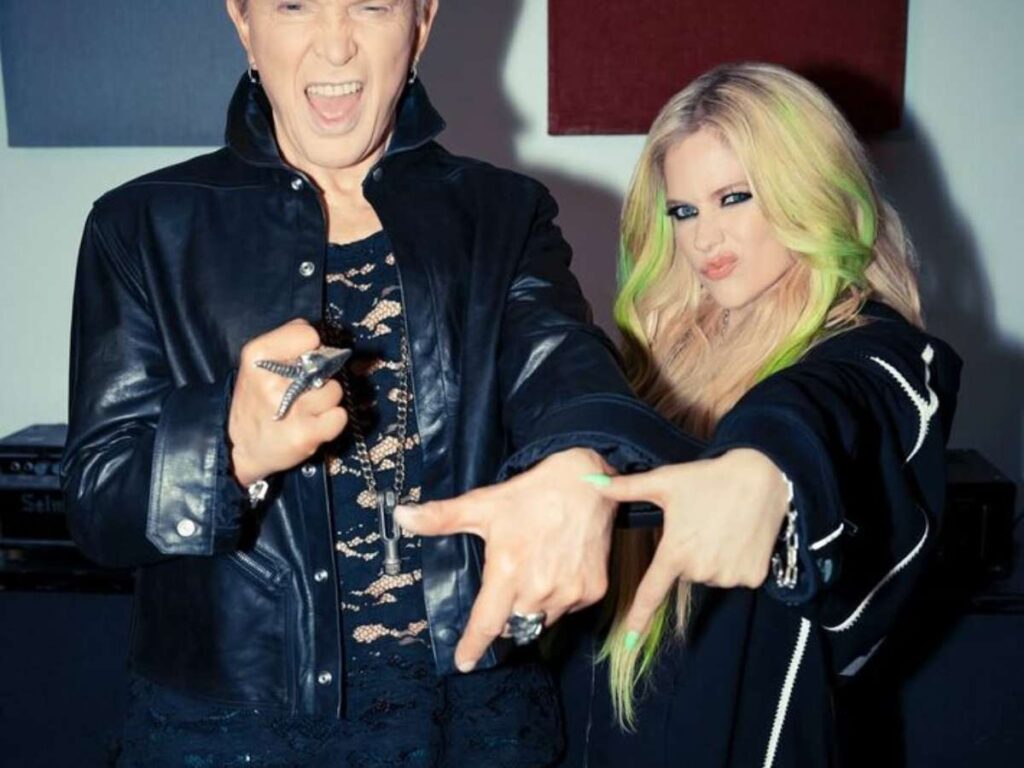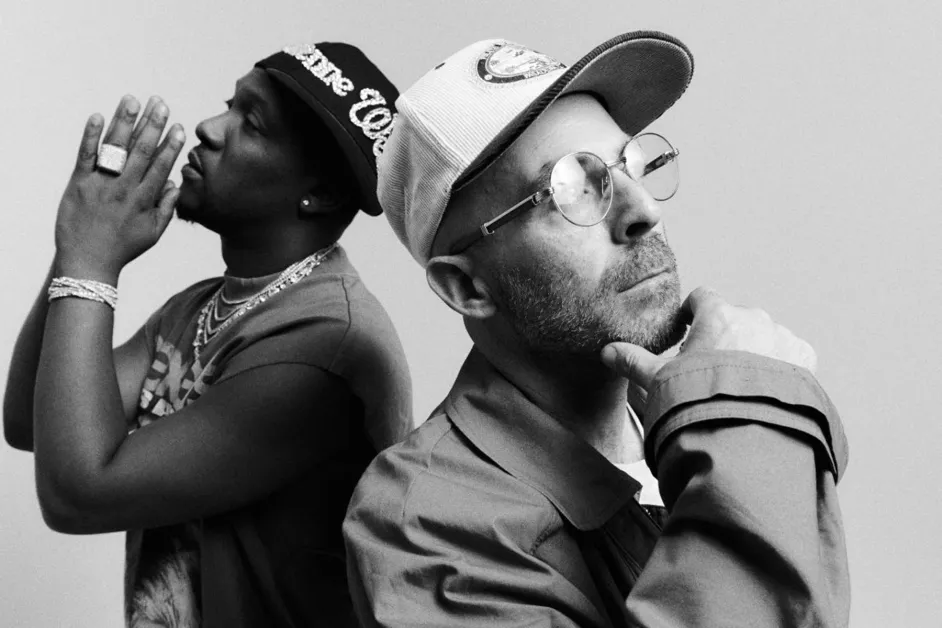A generational duet set in static, eyeliner, and neon defiance
There are songs that crash into the present—and others that haunt it. “77,” the new collaborative single by Avril Lavigne and Billy Idol, doesn’t so much update punk as it resurrects its atmosphere, rewiring rebellion into a pop-noir power chord soaked in memory and mascara. It is both a conversation and a possession: Avril speaking from the eyeliner-stained Y2K battleground of mall goths and low-slung belts; Idol rising from the smoke of late-’70s blitz clubs with safety pins and snarl intact.
This is not nostalgia. This is reclamation. “77” stakes its sound somewhere between heartbreak and sneer, between the Sex Pistols and Sk8er Boi—rebellion not as rage, but as style survived.
The Title as Portal
“77” is a year—yes—but also a symbolic timestamp, referring to the primal summer when punk hit critical mass. In 1977, The Clash dropped their debut, the Sex Pistols ignited tabloid flames, and punk as a global movement crystallized. It was a year when everything felt combustible.
For Avril and Billy, “77” becomes not just a reference, but a keycode. It opens a door between generations. Lavigne was born in 1984. Idol emerged from the Bromley Contingent. And yet here they are—equal, amplified, and electrified, writing across time in power chords and sharp eyeliner.
The song doesn’t mimic 1977—it samples its energy, compresses its static, and throws it back onto a glitter-soaked stage under LED light.
Sound Design: Glue and Grenade
Produced by a blend of analog grit and digital polish, “77” feels like it was recorded in a London squat with LA reverb. The song opens with a jagged two-note guitar riff, distorted just enough to feel like it’s clawing through old tape. Then comes a drum line—tight, mechanical, almost industrial.
Lavigne enters first. Her voice is higher, sharper than we remember, but still edged with vinegar and neon. She sings like she’s scrawling her name in a bathroom stall: half threat, half love note.
Billy Idol doesn’t enter so much as detonate. His voice is lower now, frayed at the edges, but still full of charismatic menace. His verses are part growl, part seduction. When the two harmonize, it’s not romantic. It’s combative harmony, like Sid and Nancy fronting Garbage.
The chorus hits like a bottle to the floor:
“We were born in 77 / But we kiss like the end of the world / Pinned to leather, spitting heaven / Every time your switchblade twirls.”
It’s not just punk. It’s pulp mythology.
Lyrical Code: Safety Pins and Sentiment
The genius of “77” lies in its lyrics’ ability to bridge archetypes. It plays with punk iconography not as costume, but as emotional vocabulary.
- “You drew stars on my combat boots.”
- “We stole the moon from a record sleeve.”
- “You called me Sid—I made you bleed.”
These aren’t just lines—they’re zines disguised as verses. Collaged. Reclaimed. Blending the sacred and the disposable. The lyric sheet reads like something found inside a cracked jewel case, scribbled in lipstick and glitter pen.
What makes it work is the song’s refusal to sentimentalize the past. Punk isn’t idealized—it’s mourned, mocked, and made out with. The past is not holy—it’s haunted.
The Performance: Leather and Lace Redux
In the music video—already a minor viral storm—Avril and Billy stalk an abandoned mall that slowly transforms into a neon-lit punk utopia. Wrecked mannequins. Flashing CRT televisions. Spray-painted lyrics across escalators.
Lavigne wears a reimagined Vivienne Westwood corset, fishnets layered under tartan slacks. Billy dons a shredded black trench with blood-red lining and fingerless gloves. Together, they look like ghosts who stayed too long and now own the afterlife.
Their chemistry is palpable but platonic—like glam twin flames. No faux romance. Just shared attitude. Each performer respects the other’s era without sacrificing their own.
Why This Matters Now
“77” isn’t just another retro anthem. It arrives at a time when both punk and pop culture are being re-evaluated, remixed, re-weaponized.
- Gen Z discovers riot grrrl via TikTok.
- Thrifted safety pins become fashion again.
- Underground clubs quote Patti Smith as much as they sample hyperpop.
In this climate, “77” feels like both a time capsule and a flare. It signals that intergenerational punk is not only possible—it’s necessary. That rebellion isn’t tied to a decade, but to an attitude. That a 60-something glam icon and a 39-year-old pop-punk queen can still write the riot.
The Bridge: A Moment of Grace
Midway through the track, everything drops out. Just a distorted acoustic guitar and Avril’s voice:
“I never fit the uniform / I wrote my name in chewing gum / You said we’d live until we’re scorn / And die before we’re 21.”
It’s a rare moment of softness—like blood beneath studs. Then the band kicks in again, louder than before, as if to swallow that vulnerability before it spreads.
This bridge is the song’s soul. Beneath the leather, the spikes, the snarls, lies the core truth: punk wasn’t just noise. It was need.
Impression
In “77,” Lavigne and Idol don’t resurrect punk. They remix its DNA. They don’t chase relevance—they extend resonance.
The song ends not with a fade, but a final shout:
“We weren’t born then, we BECAME it.”
And that is the ethos of “77”: that punk was never about the year. It was about becoming what no one expects you to survive as.
No comments yet.








